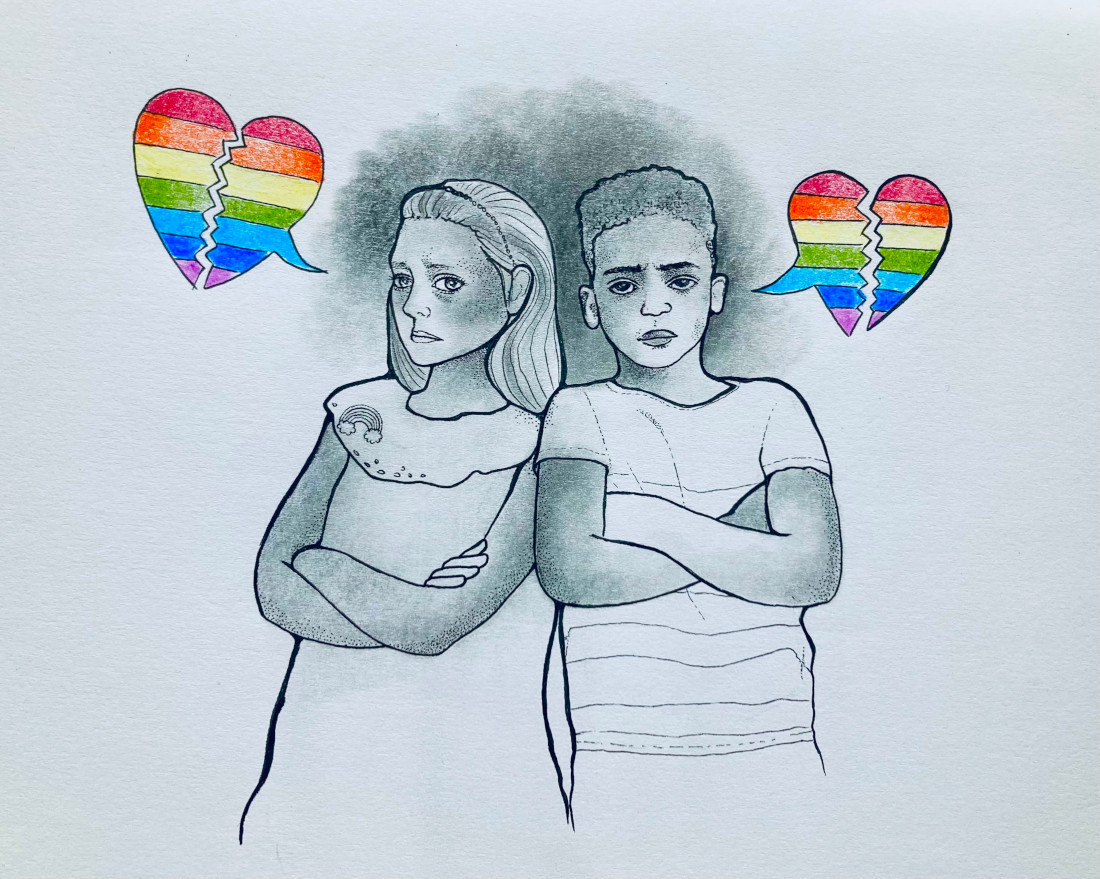‘Gay’ isn’t a bad word
The far-reaching impact of Florida’s proposed homophobic bill
Illustration by Gabrielle Funk
This is the case just about everywhere. Stonewall, a United Kingdom-based gayrights organization, reports that 99 per cent of queer British students hear homophobic comments in school. While it might be tempting for some teachers and administrators to ban these phrases outright, doing so can have unintended consequences.
“Pupils start to think that the word is taboo, and that ‘gay’ does mean something bad or that they can’t discuss anything to do with gay people, potentially encouraging homophobic attitudes,” a Stonewall education guide reads. Earlier this month, Florida senators approved legislation effectively banning discussions of sexual orientation and gender identity in school classrooms.
Dubbed the “Don’t Say Gay” bill by Democrats and queer activists, this legislation states that “Classroom instruction by school personnel or third parties on sexual orientation or gender identity may not occur in kindergarten through Grade 3 or in a manner that is not age appropriate or developmentally appropriate for students in accordance with state standards.”
The bill’s language is intentionally “vague and subject to interpretation,” Dana Goldstein writes for The New York Times, and would allow guardians to sue already cash-strapped school districts if they believe their children received “inappropriate” lessons.
The Trevor Project, a crisis-intervention organization for queer youth, condemns the bill, which could further marginalize and endanger vulnerable students.
“Banning speech about sexual orientation and gender identity in Florida classrooms would not only be an infringement on civil rights, (but) it would also erase entire chapters of history, classic literature and critical health information from textbooks, to say nothing of erasing students themselves,” Sam Ames, a representative for the Trevor Project, says in a statement.
Author James Kirchick writes in The New York Times that the bill could also censor individual expression. “Gay students and the children of same-sex couples, for instance, would likely be inhibited from talking about their lives, and teachers could face the wrath of angry parents simply for discussing historical events involving gay people, such as the deadly 2016 attack on a gay nightclub in Orlando.”
The Florida legislation is “one of a raft of bills around the country designed to put new restrictions on teachers and administrators related to sexual orientation and gender identity,” but this is far from a uniquely American problem.
Just two years ago, a Manitoba Human Rights Commission investigation found that provincial curricula discriminate against queer families. The commission’s 40-page report details how Manitoba teachers were given “little guidance” about how to address gender diversity or sexual orientation in the classroom. Guardians can also opt their children out of related lessons, because they involve “sensitive topics.”
In reality, these are among the most important subjects students will learn. As the Trevor Project reports, “Compulsory education results in most LGBTQ youth spending the majority of their waking hours in school, a setting that can serve both risk and protective functions.”
It’s up to educators, lawmakers and advocates to ensure schools are safe, protective spaces for all students. After all, as Sexuality Education Resource Centre representatives Nicole Chammartin and J. Fiedler write for CBC Manitoba, “the best sexuality education is the truth.”
The truth is that queer people exist. And we deserve to be accepted, educated and celebrated.
Danielle Doiron is a creative and educator who splits her time between Winnipeg, Philadelphia and small Midwestern towns. Catch them reading, procrastinating or defending the pineapple on pizza.
Published in Volume 76, Number 22 of The Uniter (March 23, 2022)






